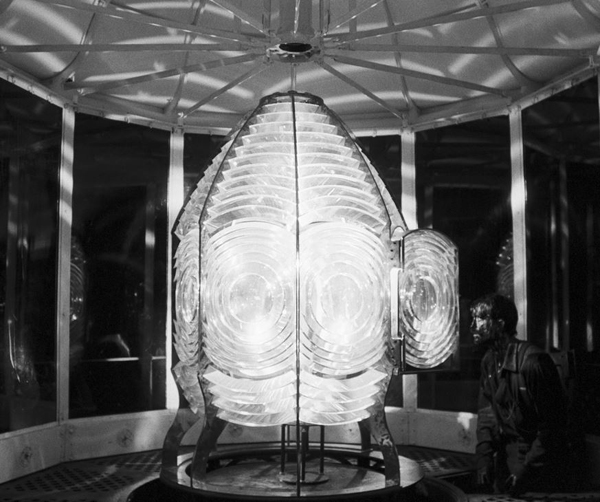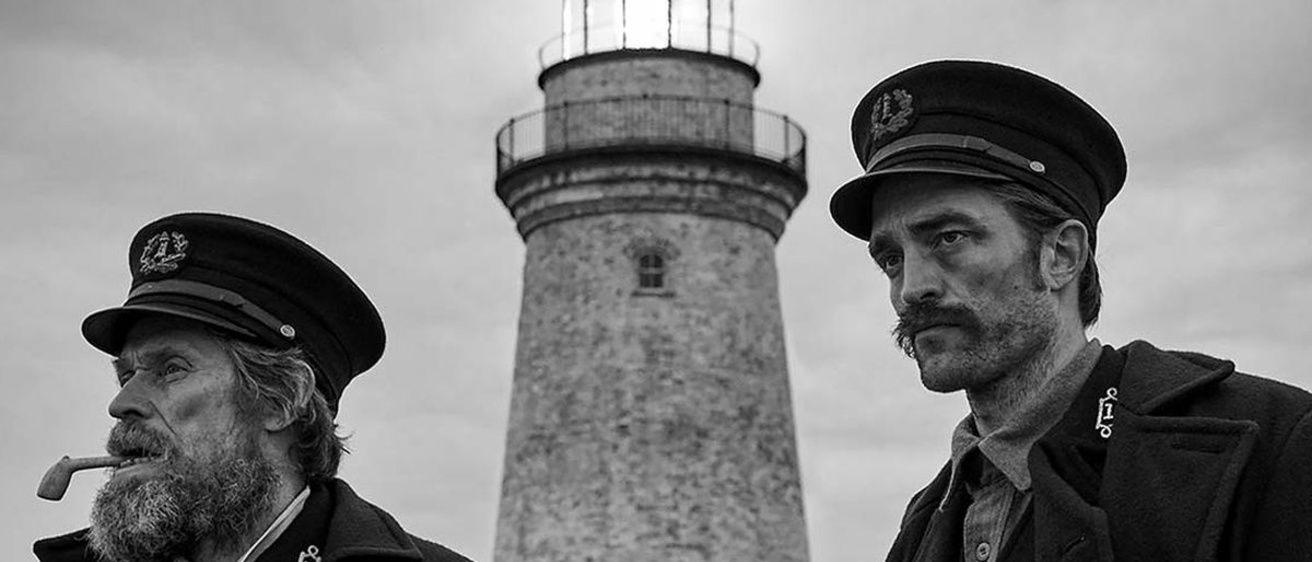By Nathan Kouri

There are great moments here—the electronic laughter in the lantern, Pattinson's cartoonish run across the rocks on the shore, Dafoe's lighthouse face, the difference between Dafoe's eloquent barrage of insults and Pattinson's pitiful one—and the second half fitfully finds a manic energy, but Eggers is too self-conscious and gets in the way of his own juicy set-up and casting. He doesn't have enough imagination as a director to activate this material, either in the surreal stuff (the montage works but the imagery is standard-issue) or the dialogues, which are done almost entirely in shot-revere-shot close-ups with both actors sitting or standing still (underutilizing the powerful physicality of each), the more visually remarkable moments confined to inserts and transition scenes. These moments only highlight what a shame it is whenever Jarin Blaschke's lovely cinematography is tethered to such banal compositions.
Eggers' screenwriting, like his direction, is light on poetry and overly schematic; the characters' loneliness is more named than evoked (is there a more obvious way to convey straight male homoeroticism than having the leads almost kiss then break into a fistfight?), their rivalry built-in to the situation but dramatically inanimate, without an internal logic.
This intentionally all-surface approach to the characters and their sudden changes and reversals, along with the abstractions and vacancies in the story and imagery, seems like it's gesturing towards a Beckettian mode of unholy anti-drama. But the movie doesn't go quite as far as that. We still get a conventional backstory for Pattinson's character that psychologizes at least some of what is to come and the more obscure parts of what came before, as well as a legible, if suspiciously superficial, dynamic of generational tension between the characters, and obvious markers of sexual repression as the driving force of the film. It doesn't commit to the removal of psychology, order, cause and effect, &c that you'd find in Beckett but it also doesn't have a well-developed dramatic arc or rapport between strange but still humanoid characters like, say, Phantom Thread (2017), which this resembles a less complicated version of at times. Instead, it sticks to a kind of middle ground that I think dilutes its effect.
The delightfully loud and noisy soundtrack is technically impressive, but is similarly used without much discretion. The result is a glossing over of potentially tense or emotionally complicated moments with foghorn blares, whose constant signifying drowns out any kind of ambience. Which is as good a summary of the movie as any.
